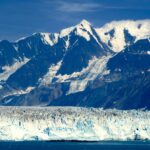Last month, a client reached out to me in what I can only describe as Alaska planning panic. She and her husband had been researching their Alaska cruise for three weeks, and instead of getting closer to a decision, they felt more confused than ever.
“We’ve read everything,” she told me. “Every blog post, every review, every comparison. We know more about Alaska cruises than we ever wanted to know, but we still don’t know what to book. The more we learn, the more overwhelmed we get.”
Her experience perfectly captures a unique phenomenon in Alaska planning: it transforms excitement into anxiety and research into paralysis.
Why Alaska Planning Feels Different
After three years of helping families navigate Alaska cruise decisions, I’ve learned that planning for Alaska triggers psychological responses that Caribbean or Mediterranean planning simply doesn’t evoke.
Information abundance creates decision paralysis. With so much information available, families believe more research will lead to better decisions. Instead, each new piece of information reveals three more factors to consider, creating an endless loop of research without resolution. 📚
Stakes feel higher for Alaska. Many families view Alaska as a once-in-a-lifetime experience, which amplifies the pressure to make the “perfect” choice. This transforms normal cruise planning decisions into high-stakes choices where making the wrong decision feels catastrophic. 🎢
Complexity increases with knowledge. As families learn more about Alaska cruising, the complexity grows. Route differences, glacier variations, ship positioning, cabin selection strategies, and timing considerations—each layer adds to the decision complexity rather than providing clarity. 🧩
Expert opinions conflict. Online information often contradicts itself. One source claims southbound routes are better; another prefers round-trip. Some recommend large ships, while others advocate for mid-size. Conflicting expert opinions create uncertainty rather than confidence. ❓
The Alaska Overwhelm Cycle
I’ve observed that Alaska planning follows a predictable psychological pattern I call the “Alaska Overwhelm Cycle”:
Stage 1: Excitement and Initial Research. Families begin with enthusiasm, diving into research, confident that learning more will help them make better decisions. 🌟
Stage 2: Information Explosion. They uncover the complexity of Alaska cruise choices—routes, ships, cabins, timing, glaciers, seasonal variations, port differences. What seemed straightforward becomes multifaceted. 💥
Stage 3: Decision Paralysis. With too many variables and conflicting information, decision-making becomes impossible. Families delay booking while they “figure out” the right choice. ⏳
Stage 4: Planning Anxiety. The combination of high stakes (a “once-in-a-lifetime” trip), time pressure (inventory disappearing), and complex choices transforms excitement into stress. 😰
Stage 5: Reactive Booking or Avoidance. Families either make rushed decisions to escape the overwhelm or postpone Alaska cruising entirely because the planning process becomes too stressful. 🚫
The Professional Guidance Transformation
Here’s what I’ve learned about breaking the Alaska overwhelm cycle: professional guidance doesn’t just provide better information—it transforms the psychological experience of Alaska planning.
Filtering replaces overwhelming. Instead of processing every piece of information, families receive strategic guidance that filters options based on their specific goals and preferences. The information overload disappears. 🔍
Confidence replaces anxiety. When families understand that their choices are guided by specialized expertise rather than random internet research, decision-making anxiety transforms into confident planning. 💪
Framework replaces confusion. Professional guidance offers decision frameworks that make complex choices manageable. Instead of endless variables to consider, families receive clear decision paths that lead to outcomes matching their Alaska dreams. 🛤️
Partnership replaces isolation. Alaska planning shifts from a solitary struggle to a collaborative process, with expert guidance supporting their decisions. 🤝
The Client Transformation Story
The client who called me in Alaska planning panic? Once we started working together, her entire experience changed.
Instead of researching every possible Alaska cruise option, we identified her family’s specific priorities: dramatic glacier experiences, comfortable accommodations for her mother-in-law, and timing that worked with their teenagers’ school schedule.
We focused on choices that matched her family’s goals: a southbound route for Hubbard Glacier drama, a mid-size ship for a comfortable atmosphere, and July timing for optimal weather.
Instead of second-guessing her choices, she gained confidence that her decisions were strategically guided toward outcomes that aligned with her family’s desires.
Two weeks after that panic call, she booked her Alaska cruise with excitement instead of anxiety. The difference wasn’t in the cruise she booked—it was in how she felt about the process and her confidence in the outcome. 🎉
Why Alaska Creates This Response
Alaska cruise planning overwhelm isn’t a character flaw or a sign of inexperience—it’s a natural response to Alaska’s unique complexity:
Alaska has genuine complexity that Caribbean cruising doesn’t. Route differences, seasonal variations, and ship positioning strategies aren’t just marketing complications—they’re real factors that significantly impact experiences. 🌊
The stakes really are higher. Alaska is often a once-in-a-lifetime trip, representing dreams families have built over years or decades. The pressure to “get it right” is real and justified. 💰
Information abundance without context creates confusion. While there’s excellent information available, without strategic context for individual family goals, it becomes overwhelming rather than helpful. ❗
The Overwhelm Solution
The solution to Alaska planning overwhelm isn’t more information—it’s strategic guidance that transforms complex choices into confident decisions.
Professional Alaska guidance provides:
- Filtering that eliminates irrelevant options and focuses on choices that match your goals
- Frameworks that make complex decisions manageable and systematic
- Confidence that your choices are strategically sound rather than random
- Partnership that transforms isolated research into collaborative planning
The Planning Psychology Insight
Here’s a deeper insight about Alaska planning psychology: overwhelm occurs when families attempt to become Alaska experts themselves rather than working with those who are.
Families with positive Alaska planning experiences aren’t necessarily better researchers or decision-makers. They’re families who recognize that Alaska’s complexity requires guidance rather than solo research mastery.
Alaska cruise planning doesn’t have to create anxiety. With the right guidance, it can return to what it should be: exciting preparation for an extraordinary experience. 🌟

